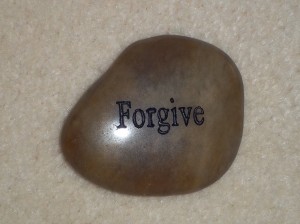In a recent blog on the Huffington Post, I wrote about the most surprising regret we heard from the older people in the Legacy Project. Over and over, the elders told us: “I wish I hadn’t worried so much,” and “Worry wastes your life.”
Project. Over and over, the elders told us: “I wish I hadn’t worried so much,” and “Worry wastes your life.”
Over a hundred readers provided their thoughts about worry and how they have overcome the worrying habit. Here are some of my favorite pieces of advice from folks all around the country. Enjoy their wisdom!
I recently have found myself coming to a similar though slightly different conclusion as that involving less worrying over the span of one’s lifetime. My own determination is to try and go through life with as few regrets as possible because what has happened is already done and over with and more often that not, these things are irreversible and and can not be redone or their outcomes changed. Just try not to make the same mistakes for things that did not quite work out like you wanted them to or which you might have done differently in hindsight. What’s done is done, for good or for bad. Try to focus your life on the here and now and on the – hopefully – brighter future that looms large up ahead, by the grace of God.
In one week in 2009, one daughter graduated law school with honors and the other graduated from a demanding high school. They are nearly seven years apart in age because my husband, in spite of being successful, was always worried about the money for their education and other needs. At the second one’s graduation, we were holding hands, and as he squeezed mine, he said, “We should have had another one. I shouldn’t have worried so much about the money.” This was a real shock to me because he has trouble admitting when he’s mistaken about something, so this was a huge thing. Very lovable!
At a very low period in my life, I was told by a priest, “Worry is interest on problems you do not have yet.”….It has stayed with me all these years
I am not a worrier. Sure, I’ve had some things that have bothered me, but most of the time it doesn’t cross my mind. When worry does hit me, I jump on it to get rid of it. Not only is it a waste of time, but it poisons relationships, ruins your enjoyment of activities, and affects health.
I found one really interesting thing about not being a worrier. Other people, suspected me of being uncaring. They worried about their teens. I didn’t. I did everything I could to make sure they were safe and following the rules, and then I enjoyed them. There were other moms who questioned if I loved them because, to them, love and worry were inseparable. Not only is that false, not worrying leads to better relationships with your kids, as far as I can tell.
I have a child with a terminal illness, although he has been defying the odds. On top of that I have developed some sort of auto immune disorder that robs me of my hearing, as the “breadwinner” in our family you can imagine the stress this has caused. There was a low point where I thought I simply couldn’t take it anymore. You know what got me there? Worrying. Im still working, he’s still alive, we are still living a decent life. I wish you the best in your struggle with this awful habit.
I called a friend(actually my AA sponsor) years ago to tell her about some awful, terrible life-altering problem. She asked if I remembered a call I had made several months before with another awful, terrible life-altering problem. I did not. Her response. “Well, there you go” and she hung up. Best lesson ever. If I start fretting over anything I think: Is this something that will matter in 6 months? Almost always it is a no. One instance it was raining horribly, roof was leaking and water was coming close to back kitchen door – then lightning struck my computer and I sat down to cry. Remembered that phone call, changed attitude, and it turned out fine.
I’m 65. This article is 100% right! Human mistakes of the past can be valuable in teaching us life lessons so there’s no good reason to regret them. But time wasted cannot be reclaimed and serves no useful purpose whatsoever. It’s best to “fill the unforgiving moment with 60 seconds worth of distance run”. As I look back, there are parts of my life when I sure wish I’d done that instead of worrying about something I couldn’t do anything about. Good news is that I’m not worrying now! I think I just ran my course with it.
At 35, someone told me this quote. I’m 68 now and it has never left me: “Worry is like sitting in a rocking chair. It doesn’t accomplish a damned thing. It just gives you something to do!”
We welcome more of your thoughts and strategies about worry!








